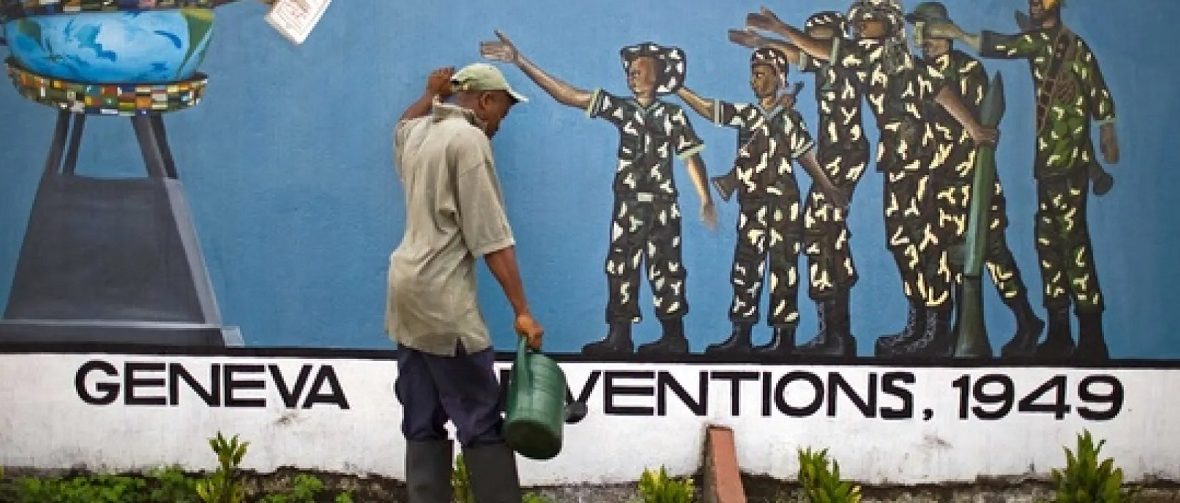2024 marks the 75th anniversary of the four Geneva Conventions of 1949, providing an opportunity to reflect on their fundamental role in protecting people affected by armed conflict.
When international humanitarian law (IHL) is respected, lives are saved and people’s dignity is upheld. The 75th anniversary of the Geneva Conventions – the cornerstone of IHL – reminds us of the world’s agreement that wars must have limits, and that, regardless of the circumstances, respect for human dignity and compassion must always guide our actions.
Watching the news, we can easily get the impression that IHL is no longer relevant and never respected. Just like in 1949, today’s wars continue to have horrific consequences: taking lives, separating families and causing unspeakable suffering. Yet by focusing on victims of armed conflict and their needs, IHL does prevent and mitigate some of war’s worst consequences – although much more must be done to improve implementation and compliance.
Key things to know about the Geneva Conventions
Origin and purpose
The Geneva Conventions were adopted in 1949 and are now universally ratified, representing a universal acknowledgement that war needs rules to limit its devastating impact on humanity. They form the core of international humanitarian law (IHL), which protects people who are not, or are no longer, taking part in the fighting. IHL also regulates the conduct of armed conflict by limiting the means and methods of warfare to maintain some humanity in armed conflicts, save lives and reduce suffering. The Geneva Conventions – and IHL in general – safeguard the rights of everybody affected by armed conflict and ensure that everyone, even an enemy, is seen as a human being.
Universally shared values
IHL is the formal expression of universally shared, deeply held human values. In history, virtually all wars have had at least some rules governing how they can be fought and how people at risk – like detainees, children or the wounded and sick – should be protected. IHL both complements and strengthens legal traditions, civilizations and cultures, and is a common heritage of humankind. The strength of the world’s agreement on these rules to limit the human cost of war should not be underestimated. In fact, the world has no stronger tool at its disposal to use in times of war to protect victims of armed conflicts.
75 years on, these rules remain as relevant as ever
In a divided world, it remains a powerful fact that every state has decided that limiting the human cost of war is their legal obligation. As many of the contemporary treaty-based rules of IHL turn 75, they remain as relevant as ever. When parties respect the law, lives are saved, families stay in touch with their loved ones and detainees maintain their dignity. These things are less visible or newsworthy, but they are powerful reminders that IHL does act as a brake on inhumane behaviour in war, and that we would be worse off without it.



Comments